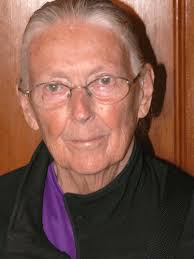
Dorothy Smith is a feminist sociologist whose work can easily be applied to the interdisciplinary world of legal studies. In particular, A Peculiar Eclipsing and Beyond Methodology are two chapters that deal with the creation of power through discourse and how it may reinforce patriarchal power structures.
The former chapter explores the history of exclusion of women in writing and culture as well as how they are reproduced at the time of Smith’s writing in the late twentieth century. The latter chapter emphasizes the standpoint of women in sociological writing. It should be noted that– in Smithian terms– the word ‘standpoint’ refers to the point of view held by any given demographic.
In A Peculiar Eclipsing, Smith begins by exploring the representation of the standpoint of men in various cultural manifestations. She explains that the male perspective can easily be taken as universal truth. On the flip side, the lack of female representation in culture relegates women’s standpoints to matters of opinion instead of facts.
This makes way for a society where areas of knowledge have male-dominated frameworks embedded into them, which makes women’s perspectives seem less legitimate. The author gave the example of sexuality. She wrote that the traditional, Freudian concept of sexuality is based on the male experience. Thus, the female experience of sexuality and the body are treated as “the other”.
The kind of repression that Smith explores has many origins. A major one that Smith identifies is the division of genders in formal education— an institution of socialization. While women are over represented in elementary schools, they are underrepresented at all other levels of schooling.
Further, administrative positions in education (e.g. principals, department chairs, presidents) are largely held by men. These two factors serve to propagate male ideas and give them the legitimacy that comes with academia. The contemporary lack of women in schools and universities is partly due to their historic exclusion from such places.
A Peculiar Eclipsing also argues that individual men are seen as more authoritative than women. Said authority stems from the fact that a man’s voice is perceived as representing the power and authority of patriarchal structures.
In a similar vein, Beyond Methodology attempts to take up the “the problems and questions of how our political discourses and texts organize relations among us.”
A major argument brought up by Smith is that professional knowledge is a tool used to monopolize control over legitimate knowledge and preserve the male-oriented status quo. This serves to ensure that personal problems are framed by the media and society as merely issues of the public and that they never become fuel for radical, systemic change.
The ideas brought forward by Smith relate to what was studied in class in many ways. For one, there are many parallels between her scholarship and that of Michel Foucault’s. Both academics were deeply interested in the ways that discourse and institutions perpetuate existing hierarchies.
They also explored how institutions that appear to be neutral (schools, psychiatry, etc.) are dominated by powerful people. Thirdly, the two academics approach their work from the perspective of marginalized people— Foucault as a g*y man and Smith as a woman.
The theoretical framework of discourse as a form of power and patriarchy is also incredibly helpful in a class that examines equality and discrimination form a legal studies perspective. It can be used to find the limitations of the law on paper and explore how the law itself perpetuates exiting hierarchies as well as creates new ones.
